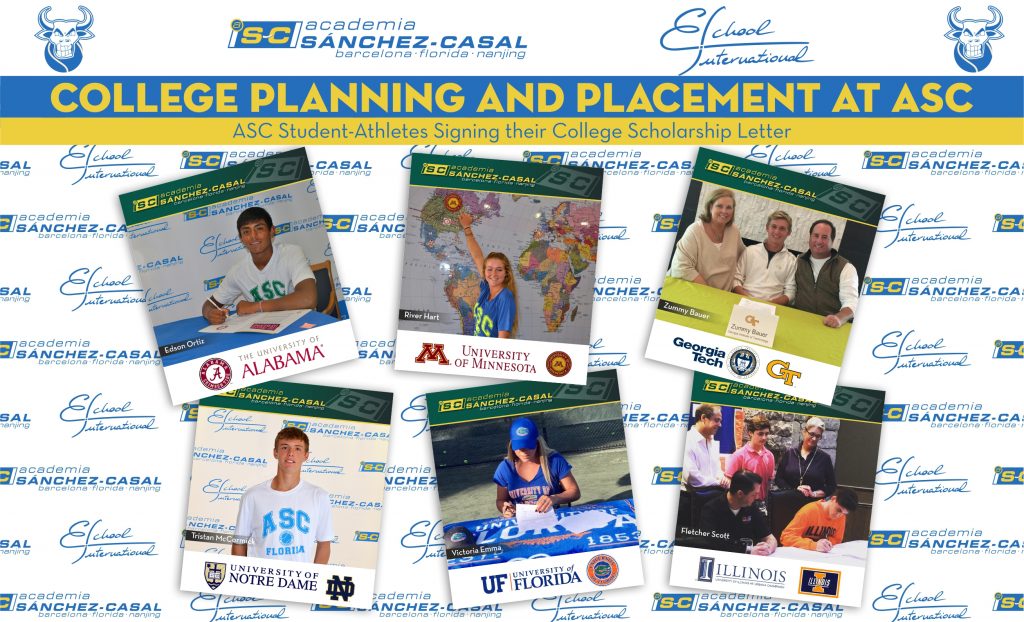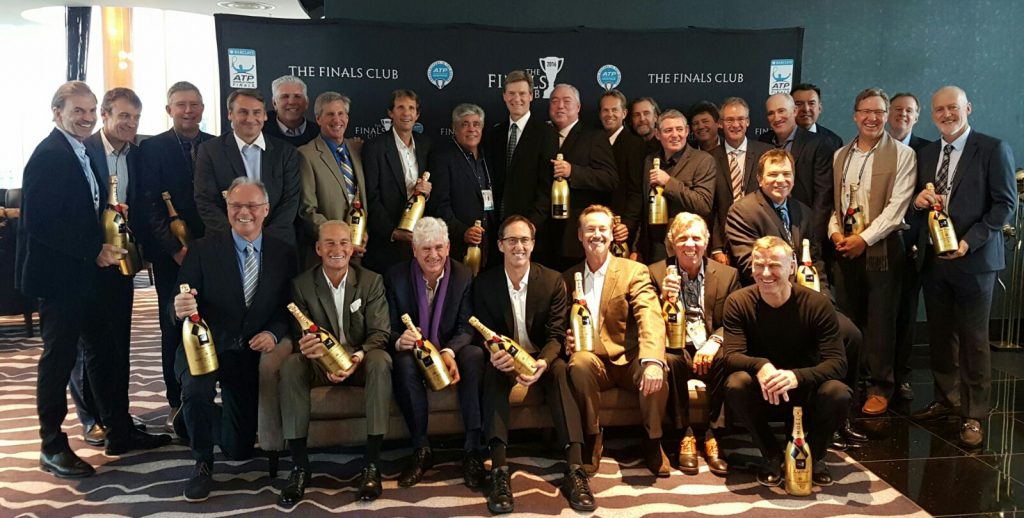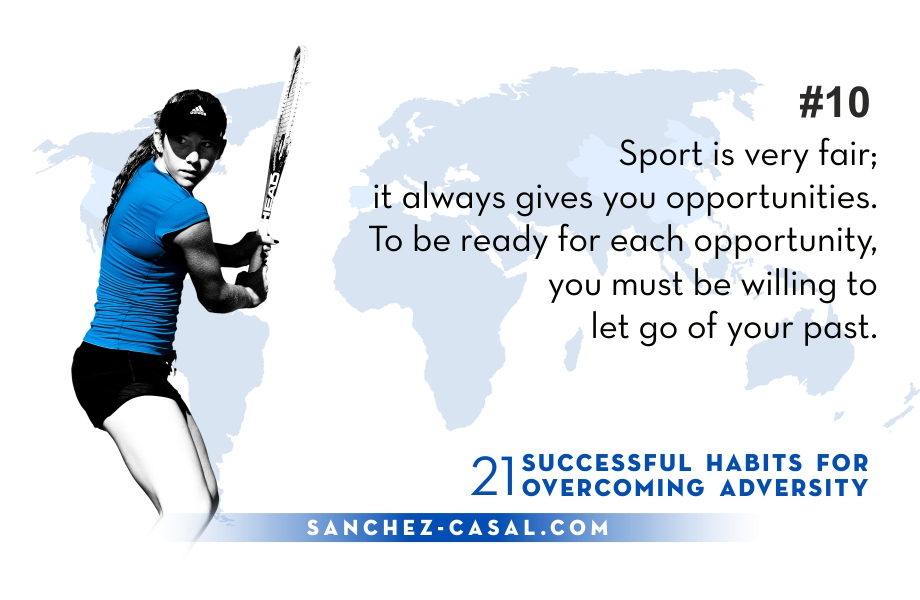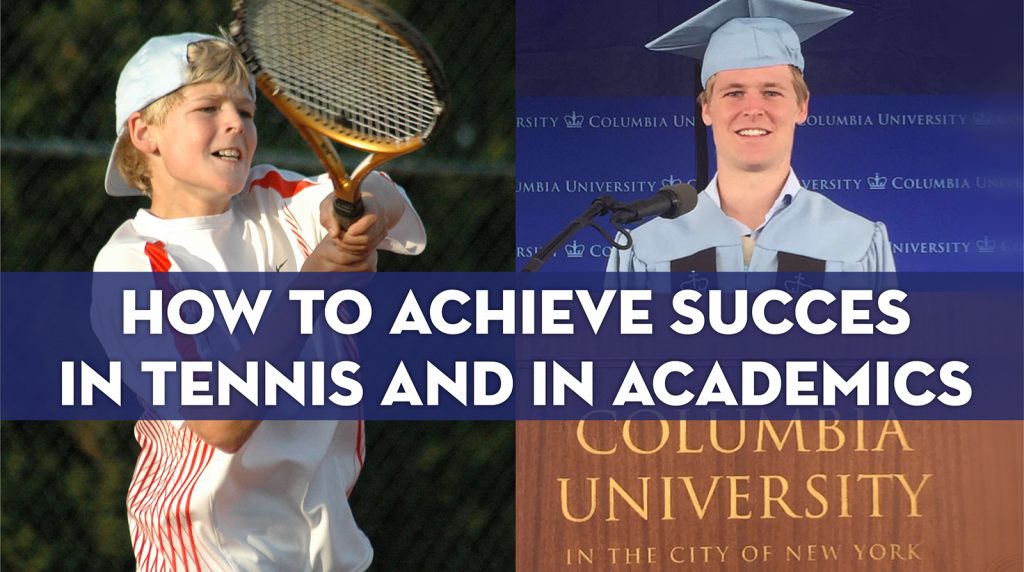#13 Successful Habit for Overcoming Adversity

Enjoy the pressure. Feel it, like it, savor it. You’ve worked so hard to arrive to this moment and now you are READY.
By Emilio Sánchez Vicario, CEO & Founder at Sánchez-Casal Academy.
The Davis Cup is different. It is something special that arrives at the end of every year bringing incredible stories full of emotion. The result of this energy that turn out epic matches. This year, Argentina’s story touched my heart.
Reflections on College Athletics and Scholarships

The month of November has been a special time here at Academia Sanchez-Casal. First, we had our alum Andy Murray capture the number one spot in the ATP rankings and later during the National Letter of Intent (NLI) signing period we had six student-athletes formalize their commitments to some of Division I’s top academic and athletic schools: River Hart- University of Minnesota, Victoria Emma- University of Florida, Edson Ortiz Tovar- University of Alabama, Zummy Bauer- Georgia Tech, Tristan McCormick- Notre Dame, Fletcher Scott- University of Illinois. For these high school students, this event marked an important milestone and sets them on a path to continue their tennis careers while also earning a quality education.
Emilio Sánchez and Sergio Casal, honored at the London ATP Masters 2016.

The ATP invited Emilio Sánchez Vicario and Sergio Casal to be part of the “Finals Club”, an exclusive club that celebrates the heritage of the ATP World Tour finals, and honors the players who had such an important role in the success of the event. We are proud of our founders!
#12 SUCCESSFUL HABIT FOR OVERCOMING ADVERSITY

Michelle Konkoly is all energy and determination. Last summer, the 24-year-old athlete saw her dreams fulfilled when she won 4 medals at the 2016 Paralympic Games in Rio and broke two Paralympic records in the S9 100m freestyle and the S9 50m freestyle.
Originally from Pennsylvania, at Georgetown Konkoly joined the university’s swimming team. Her life was changed dramatically, however, when in her freshman year she fell five stories out of her dorm window and was seriously injured. She fractured several ribs and a vertebra, damaged her spinal cord, and as a result, was left paralyzed from the waist down.
IMPROVE YOUR TENNIS LEVEL WITH SELF-TALK
Many times we see tennis players motivating themselves on court, with phrases like “Come on!” or “Got it!”. Or we see how they give instructions to themselves, like “Fast!”, or “Position”. Is this useful for players? Do they do this in an instinctive way, or do they learn how to do it? Normally, these kinds of techniques are part of their training and the mental work they do, which every day becomes more and more important in the professional tennis world.
From student-athlete, to number 1 in the world

Today is one of those days when you walk around with a big smile on your face. I am proud of what I do; I am part of the journey helping others create opportunities in tennis, education and life. Therefore when you wake up and realize that one of your student-athletes has fulfilled his potential and becomes NUMBER ONE IN THE WORLD, it just fills you up with a sense of pride and accomplishment. Everything that you work for makes sense.
DO YOU WORK WITH A SPORT PSYCHOLOGIST? YES, I DO.
Sports psychologists are not new to tennis. Ivan Lendl travelled with Alexis Alexis Castorri in the 1980s, and Martina Navratilova worked with one too. When somebody asks me if this role is key to a successful tennis team, my answer is always ‘no’. However, I would argue that working with a sports psychologist brings a lot of benefits, and can help tennis players, coaches, parents, even businessmen and women, to develop their game.
#10 SUCCESSFUL HABIT FOR OVERCOMING ADVERSITY

Sport is fair. Life should be fair as well. We may make mistakes, but if we persist, a new opportunity will come along. It will always end up appearing. But you should be prepared, working, looking forwards with confidence but not in a rush.
#9 SUCCESSFUL HABIT FOR OVERCOMING ADVERSITY

With 17 Grand Slams in his pocket, Roger Federer has lost multiple finals since 2008: to Nadal four times, once at the French Open, once at Wimbledon and once at the US Open; and to Djokovic, three times.
This amounts to more than ten Grand Slam finals lost – we can only imagine where he would be in the ATP ranking. However, today I’m not going to talk about the matches in particular, or about tactics, physical condition or mindset. Today I want to commend Roger Federer as a role model, as a player who respects his rivals when he is defeated.
A STORY OF SPORTING AND ACADEMIC SUCCESS

At Sánchez-Casal Academy we have been using tennis and education as a vehicle for the personal development of our young players for almost 20 years. We are extremely proud of all who have trained and studied with us. One of those is Mike Vermeer, who has graduated Cum Laude from Columbia University.




















